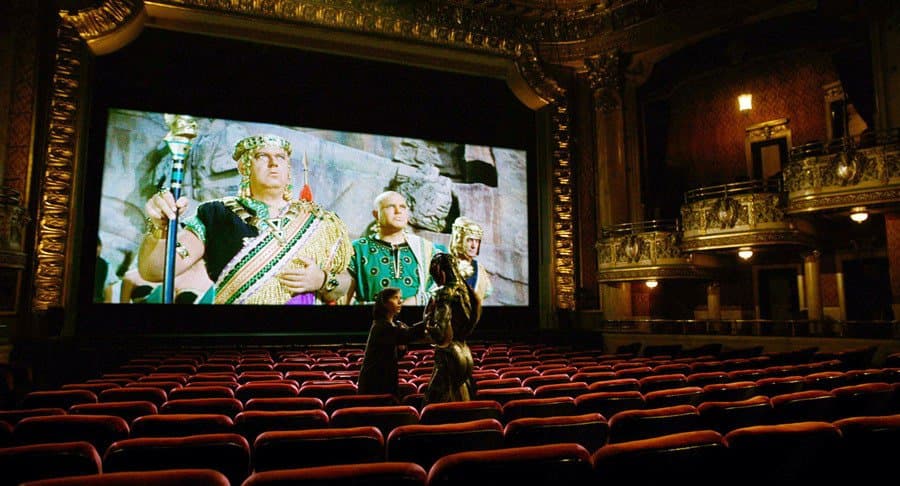Cinema is not just entertainment. It is a powerful tool capable of evoking a wide range of emotions in viewers. We can laugh to tears, feel fear, empathize with the characters, or dive into a state of deep contemplation. But what is behind this effect? Why can a film, which seems like just a sequence of images, elicit such a strong reaction in us? Let’s explore how cinema works with our emotions and why it has such a profound influence on us.
How Cinema Affects Our Perception of Emotions
Cinema is a synthesis of many arts: direction, acting, screenplay, music, and editing. All these elements come together to create a certain perception of the events unfolding on screen for the viewer. But why are we so susceptible to these effects? The answer lies in how our brains and emotions respond to art, particularly film.
When we watch a film, our brain actively processes information: sounds, images, dialogues. This process is accompanied by us beginning to identify with the characters, experiencing their events as if they were our own. The emotions that the characters go through become real for us as well, because our brain often perceives what happens on screen as reality.
Why Do We Cry in Cinema?
One of the most vivid reactions to a film is tears. At some point, we may experience sad events that make us cry. This could be the death of a beloved character, tragic events in the lives of the heroes, or, on the contrary, moments of healing and reconciliation. But why does cinema provoke such intense emotions?
One of the key factors is empathy — the ability to put ourselves in another person’s shoes. When a character in a film experiences pain or joy, we, as viewers, also begin to feel for them. Deep emotional scenes can stir our own memories and feelings, leading to catharsis — an emotional cleansing. For instance, in films dealing with loss or sacrifice, we often recall our own losses, which triggers tears.
How Does Laughter Work in Cinema?
Cinema is not limited to drama and tragedy; it also serves as a source of joy. So why do we laugh when watching a film? Laughter in cinema can be the result of both obvious comedy and more subtle cultural and social observations. Comedy films are built on exaggerating reality, creating absurd situations through which we perceive humor.
Our laughter can also be a reaction to “awkwardness” — these moments occur when characters find themselves in comical but ridiculous situations. In other cases, laughter is a defensive reaction to tension, arising from unexpected plot twists. Furthermore, laughter can be a form of social connection: we laugh in company, making cinema a reason for shared emotional experience and communication.
Why Do We Fear in Cinema?
One of the strongest emotional reactions is fear. Horror films or thrillers use elements of the unknown, darkness, and a tense atmosphere to induce fear in the viewer. But how can a film make us afraid, knowing that all of this is fictional?
Several psychological mechanisms are at play here. The first is the sense of threat we begin to feel due to changes in the plot, music, and cinematography. When the main character is in danger, we, as viewers, start to worry about their fate. The second aspect is the unknown. Horror films often employ the technique of “not showing” the threat. We don’t see the monster, but its presence is felt in every frame, activating our sense of danger. Fearful emotions can be highly contagious: when a character is scared, we follow them and experience the same feelings.
Emotional Catalysts: Music and Sound
One of the most powerful emotional catalysts in cinema is music and sound. The soundtrack sets the tone for the entire scene. The melody can be used to create tension, relief, or, on the contrary, to highlight tragedy. Sound design, especially in horror or thriller genres, can create a sense of tension or fear, even when nothing terrifying is happening on screen.
It is important to note that music can alter the perception of a scene. For example, without music, a character’s death scene might seem less dramatic, but the right soundtrack can amplify the emotional impact of that moment. Psychological research confirms that music activates the same brain centers responsible for emotional experiences in real life.
Conclusion
Cinema is an incredible emotional catalyst that touches on all aspects of the human psyche. With the right direction, acting, music, and sound design, films create deep emotional experiences for viewers. We cry, laugh, and fear in front of the screen not just because of what we see, but because of the finely crafted work that makes us experience each emotion as though it were our own. It’s important to remember that these emotions can be a catalyst for personal reflection, reevaluation, and change, and films themselves can play a role in our emotional growth and development.






